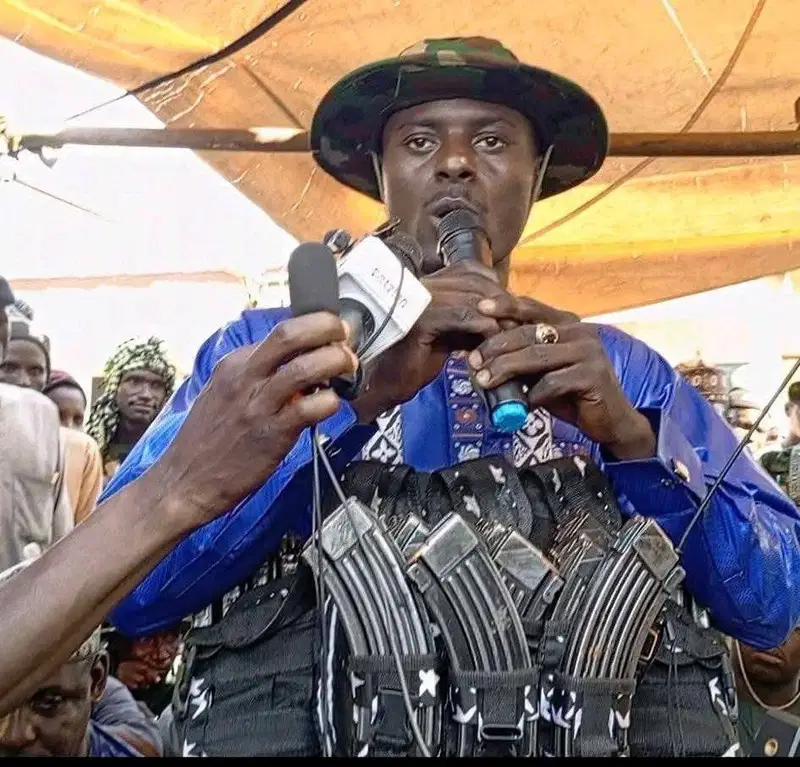High-profile bandits sitting down for talks in Katsina State’s Faskari Local Government Area—a hotspot for years of brutal raids—has ignited fierce backlash from retired military brass and security experts. While some hail the dialogue as a lifeline to halt the bloodshed, others decry it as a shameful nod to criminals that guts government clout and mocks frontline troops.
Rear Admiral Dickson Olisemelogor (Rtd) blasted the move as a betrayal of the rule of law. “It’s dead wrong. Unless it’s a plot to wreck the region, these talks serve personal agendas, not the nation. Any governor pushing this is in bed with the bandits,” he said. He noted the military follows strict rules of engagement and international law but could crush bandit camps if ordered—no excuses. President Tinubu and Chief of Defence Staff have already nixed negotiations, so anyone dealing now is chasing self-interest, he added.

Maj.-Gen. Akin Yomi echoed the fury: “Sitting with killers, rapists, and kidnappers hands them the state’s crown. It spits on our soldiers’ blood and invites every thug to grab a gun for a seat at the table. That’s not peace—it’s extortion.”
Brig.-Gen. Dogo Danjuma (Rtd), fresh from North-East insurgencies, warned it reeks of frailty. “Violence feeds on weakness. Today it’s markets and safe passage; tomorrow, they’ll want the governor’s chair. These aren’t protesters—they’re wanted thugs. Compromise emboldens them and breaks troop spirit.”

Major Bone Efoziem (Rtd) called it a banana republic stunt. “If we’re a failed state, say so—let folks fend for themselves. But if government’s got the monopoly on force, negotiating from weakness flips the script. Bandits dictate terms, and terrorism wins. Crush them instead—make surrender the only out.”

Major Saleem Yaro (Rtd) labeled it a toxic precedent: “You can’t tag a terrorist wanted, then wine and dine him armed to the teeth. It shreds the law, tanks morale, and shafts victims. Pump intel, gear, and guns into our forces—talks won’t cut it.”
The uproar stems from recent pacts in Faskari and spots like Jibia, where locals cut deals for no raids, safe farming, and open markets in exchange for bandit mobility and development nods. Wanted kingpin Kwashé Garwa—tied to cross-state horrors—even sprang 28 captives sans ransom, a brief win that locals cheered. Governor Dikko Radda, who once swore off talks, now backs these “community-owned” fixes, crediting them for calm in four high-risk councils amid 1.3 million displaced in the North-West since February 2025.

Yet critics point to flops under ex-Governor Aminu Bello Masari, where cash and forest visits backfired into fiercer attacks. Bandit negotiators now threaten troops for meddling, and rivals exploit truces to ramp up hits elsewhere in the fluid gang web.
Locals beg to differ. Faskari farmer Liman Shaheem: “Folks die daily—talks could end it. We can’t farm or school kids; we’ve begged for help, got nothing.” Hajia Memunat Rabi, a grieving mom: “We’re burying babies weekly. Soldiers fight and bolt—we’re stuck. If chats stop the grabs and market hits, sign us up. Kids’ lives trump egos.” Ibrahim Khalid invoked the Qur’an: “Reconcile where you can. Many bandits strayed from injustice; bullets breed revenge. Talks aren’t soft—they’re smart. Fix root woes like Fulani neglect with jobs and schools.”

The split lays bare Nigeria’s bandit bind: force alone hasn’t worked after a decade of ops, airstrikes, and bases. But retired chiefs say pacts without ironclad justice and victim buy-in are just graveyard quiet—buying time till the next bloodbath.




